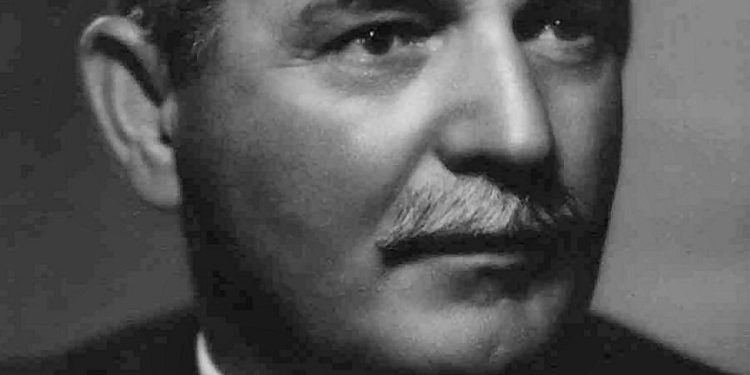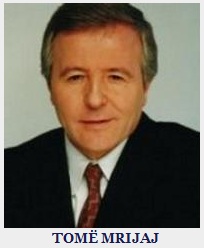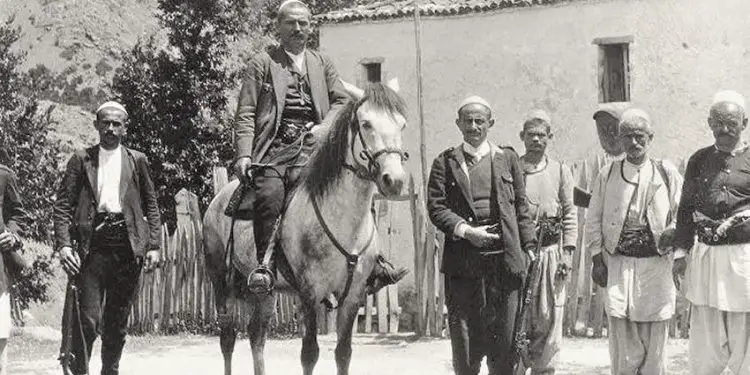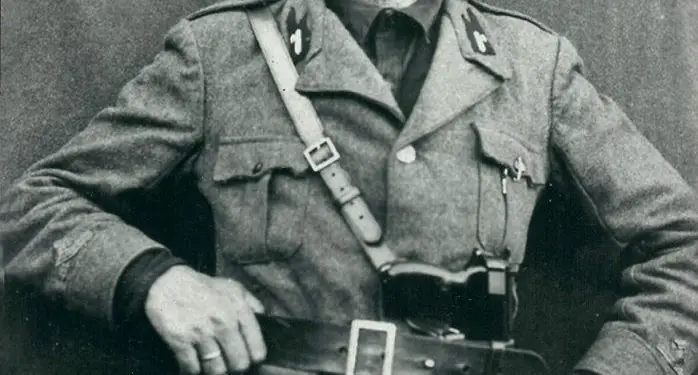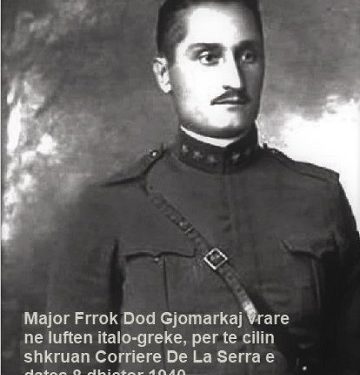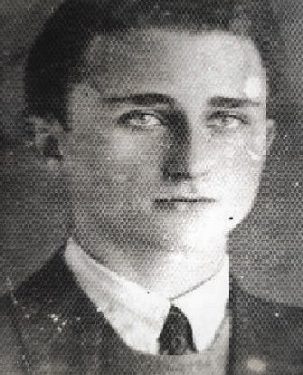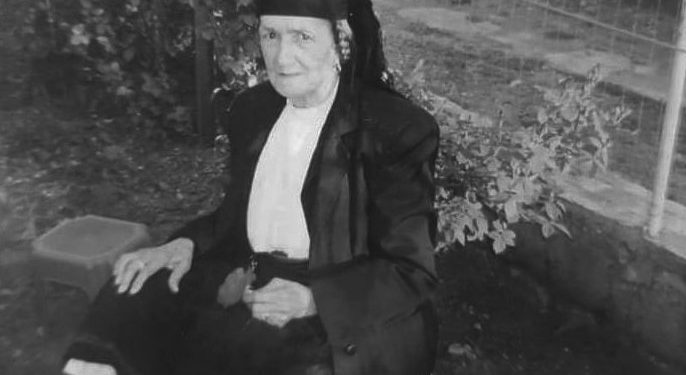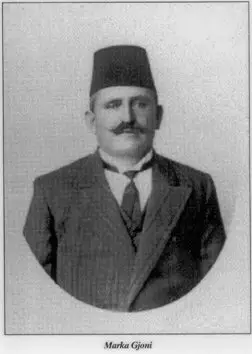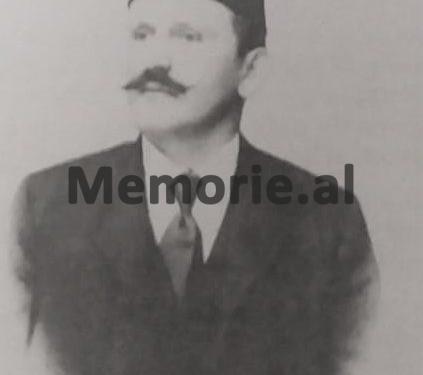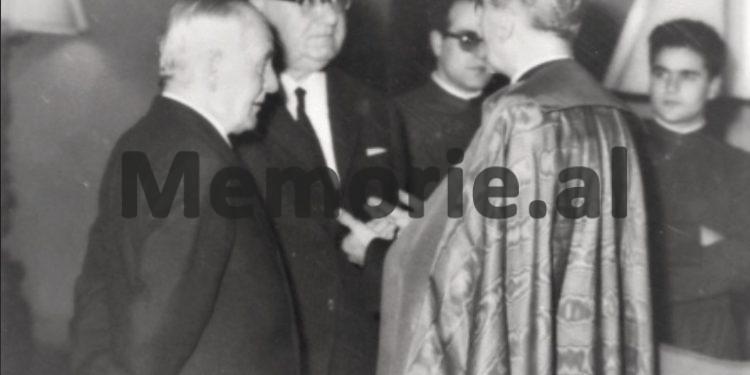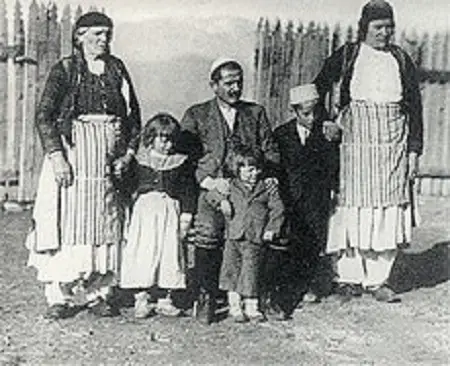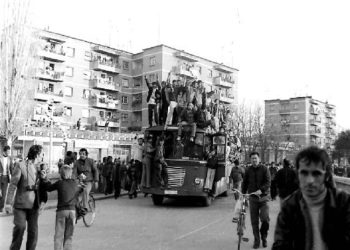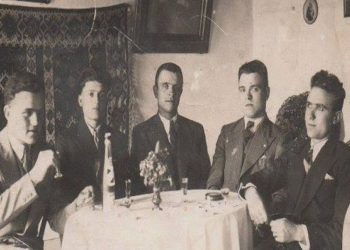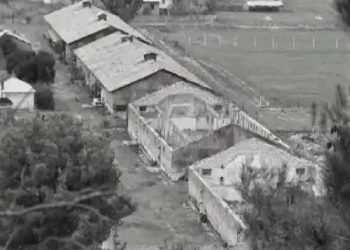Ismail Kadare: “The Tower of Gjomarku had neither police nor officials, and yet, the entire province was under its dominion.”
Memorie.al / The national masterpiece “Kanun of Lekë Dukagjini,” codified for 30 years by Father Shtjefën Gjeçovi, with 1263 articles, was first published by the Franciscan Assembly of Shkodër in 1933, four years after the assassination of Father Gjeçovi. Our national poet, Father Gjergj Fishta, in the preface, valued the Kanun as the most precious national treasure, which was preserved for centuries in the Tower of Gjomarku in Orosh, Mirdita. The writer Ismail Kadare, in his work “Broken April,” also says: “The Tower itself had neither police nor officials, and yet, the entire province was under its dominion.”
Besides the “Kanun of Lekë Dukagjini,” the House of Gjomarku also had its own regulation, belonging to the Gjomarku family, with 53 articles, unpublished until today, and provided by Kapidan Ndue Gjomarku himself. These articles are also preserved for centuries in the Tower of Gjomarku. Mirdita has 25 first chiefs (krenë të parë), who, according to the Kanun’s custom, are called elders (pleq):
Here we list the houses of the first chiefs, with Gjomarku at the head:
Orosh: The House of Bushi, of Kola, Gjatë and Gjergj Doda (Gegë Doda), of Koka.
Bajraktar (Flag-bearer): The House of Mark Prengës.
Fani: The House of Tuç Doda, of Gjok Boçi, of Shkurt Prengë Ndreca, and of Gjegj Doda (Gegë Doda).
Bajraktar: The House of Nikoll Ndreca.
Dibrri: The House of Mark Zef Ndoci, Paluc Preng Gjoni, Llesh Kol Deda, Kel Ndoc Dedushit, Pal Gjin Gjoka, Bardhok Totrri, Mark Boçi, Dod Llesh Bica.
Bajraktar: Jak Frroku.
Spaçi: The House of Ndoc Ndreca, Gjok Dodë Lleshi, Pal Gjon Laska, Per Ded Ndoji.
Bajraktar: Gjetë Bajraktari.
Kushneni: The House of Frrok Preng Nikollit, Mark Çup Nikollit, Ndue Preng Nikollit.
Bajraktar: Ndue Bajraktari.
The House of Gjomarku and the Kanun
- The House of Gjomarku is the “Reza e Kanunit”. Beyond it, there is no questioning.
- Gjomarku never goes as an Elder. The Elders are the Chiefs, inherited from son to son.
- Gjomarku does not interfere with the Chiefs’ Kanun, only when he sees that the Chiefs exceed the boundary of justice.
- At the conclusion of a trial, the conflicting parties say to Gjomarku: “May you live long, may you remain an Elder!”
- The Zabitnamë (the reconciliation of blood feuds), cannot be made by all the Chiefs together, only by Gjomarku.
- The people, one per house in Mirdita, cannot be gathered by the Chiefs, only by Gjomarku.
- If the Elders do not agree, they go to Gjomarku to be judged.
- If the conflicting parties do not accept the judgment of the Elders, they go to Gjomarku, but together with the Elders.
- If Gjomarku sees the judgment of the Elders as righteous, he does not interfere with their judgment. If it is not righteous, then Gjomarku decides.
- Gjomarku never takes fines, because the Chiefs do not allow it.
- Gjomarku has the right to honor the Chiefs, but never without reason, and must not surpass the brotherhood or the tribe, except in extremely important (necessary) cases.
- In the Zabitnamë (blood feuds reconciliation), Gjomarku has 25 young men as personal guards, all from Orosh.
- In war, he has 50 young men as personal guards.
- In case of danger, Gjomarku dispatches the messengers to notify the Bajraktars to gather the people, one man per house, to convene in Sh’Pal (Saint Paul).
- Gjomarku’s hostage is in the hands of the Chiefs.
- Should the Chiefs contradict Gjomarku, Gjomarku gathers the people, one man per house, and Gjomarku abides by the decision of the people.
- The general Itifak (Pledge of Honor/Truce) cannot be instituted by all the Chiefs together, only by Gjomarku.
- The Kanun has a Pledge of Honor, which is set for one year, up to three years, with strict sanctions: even batare (execution by firing squad).
- If the Pledge of Honor is removed from the Kanun, there is no Kanun. The pledge concerning livestock and the shepherd does not exist under the Kanun.
- Mirdita says: I owe Gjomarku no debt, only one chapter (one man per house).
- Mirdita has 25 major Chiefs and 25 minor Chiefs, and they are called Elders and Chief-Elders (strapleq) at the conclusion of a trial.
- The Bajraktar comes after the Chiefs, but leads in war.
- In wartime, the Bajraktar has 50 young men as personal guards, and they are called the Banner’s guard. If the Bajraktar falters or flees, whoever captures and leads the banner remains the Bajraktar. If he is wounded severely or dies in battle, whoever captures and leads the banner does not remain the Bajraktar, because the honor belongs to the wounded or deceased Bajraktar.
- The immovable property (land) of Gjomarku is designated with stone and boundaries, like any other property.
- Gjomarku has a share in the village pasture and in the Bajrak‘s mountain pasture.
- Gjomarku will answer for any damage done. The damage is assessed.
- Gjomarku has the right to priority at the mill, the forge, and the fulling-mill. He must pay the fee for the water and the service of the blacksmith and the fulling-mill.
- Gjomarku will appoint the worker for angarije (forced labor).
- He has a share in the irrigation turn (vade). The order of irrigation is set in the spring, according to the cultivated land, from sunrise to sunset.
- Gjomarku seals the engagement, whether receiving or giving, with a token, 5 grosh and rings (with new money, rings, and a ringing gold Napoleon).
- The wedding, to fetch the bride, with escorts (krushq): 12 escorts, and the master of the house, with the bride’s horse and the ram of the escorts following behind.
- The girl’s mother escorts the bride to the groom’s house and is called an escort (krushkë). The female escort sleeps with her daughter for two nights, and then returns to her own house.
- Gjomarku divides the fines collected in the Zabitnamë equally with the Chiefs, and the Chiefs divide them among themselves. With the half that Gjomarku receives, he will reward the young men he has with him, pay for the coffee consumed, and the fodder for the horse or horses.
- The Chieftainship (Paria) of the House of Gjomarku and Mirdita belongs to the first son of the first brother, upon birth, but the Chiefs choose the most capable one, for wisdom, maturity, and knowledge of the Kanun.
- Gjomarku’s blood is equal to any blood. “Life for life, for the Duke has forgiven it,” says the Kanun.
- If an oath is sworn to Gjomarku, it is recognized as 24 poronikë (oath-helpers), while the Chiefs are recognized as 12 poronikë, and so is the priest.
- In every place and assembly, Gjomarku is entitled to the head of the table.
- The head of the table is conceded to religious figures, the priest and the hoxha, in honor of their mission, but not because it is their right.
- The highest authority under the Kanun is the voice of the people, one per house, and it can even overturn the decision of the Chiefs. The ‘Youth of Shala’ does not exist under the Kanun.
- Each Bajrak has its own Chiefs. The Chiefs of other Bajraks cannot interfere in the internal affairs of a Bajrak, because they receive this reply: “Chiefs for Chiefs, we are ourselves, only Gjomarku is missing.”
- If Gjomarku passes away and leaves a son of minor age (child), in the assembly of the Chiefs, they send a representation to the palace to fetch the small Kapidan (chief) to preside over the meeting. His mother will accompany him and stand by the son, listening to the assembly of the Chiefs. The mother of the small Kapidan is the accurate witness for the son, regarding what was discussed and decided in that assembly. This is done for the reason: a) To avoid bringing trouble to the House of Gjomarku, i.e., to cut off the momentum of any Gjomarkaj’s request to become the first.
- If Gjomarku is summoned to examine a dispute that the Chiefs could not resolve, and for various reasons, he cannot go, he has the right to send an agent (veqil), and he shall be accepted.
- The House of Gjomarku is not a house of elders, because he never goes as an Elder, as the houses of elders are the Chiefs inherited from son to son.
- In the Zabitnamë, if someone objects, i.e., does not accept the decision of the Zabitnamë and surrender to the court, the Kanun does not affect him, but the Constable (Zabiti) forces his way in (to the house) and orders every expense to be made without saving (dinners and lunches), until his property is finished. If the Constable sees that he is not convinced, then the Kanun takes effect: the house is burned, roasted, and cast out of the place, and the land remains desolate. But no one objects, because they feel sorry for their property.
- For a marriage (wedding), Gjomarku invites the whole village. In case of death, he invites the whole village, one man per house. These are the rules of the Kanun that Gjomarku must respect.
- If a dispute occurs between Gjomarku and someone in the village or in the Bajrak, Gjomarku will appoint his own Elder, because he cannot go himself as an Elder, as the Chiefs do not allow it. He will abide by the decision of the Elders.
- Under the Kanun, there are no fine collectors (gjobarë), only assessors (çmuesat), qualified people appointed according to the case by the Elders or by Gjomarku, and he must accept them.
- The main road (for travelers), even if it passes through Gjomarku’s land, he must accept it.
- The irrigation turn, the water for the fields, even if it passes through Gjomarku’s land, he must accept it.
- If Gjomarku is summoned (invited) to a wedding, he will go with a ram.
- In death, he will go with an oka (unit of weight) of coffee.
- If invited as an escort in the Bajrak (Orosh), Gjomarku is the first escort, while in other Bajraks, he is the second escort, because, according to the Kanun, someone from the groom’s Bajrak, but the first house, must lead. The master of the house, inside the house, places Gjomarku at the head of the table (by the fireplace).
- If Gjomarku commits a blood crime, in the reconciliation of blood feuds, he must pay the blood.
- When he goes out for the reconciliation of the land (reconciliation of blood feuds), he has the right to Rrazogj (two servings of bread), which are covered by the village, and not by a single house. Memorie.al




